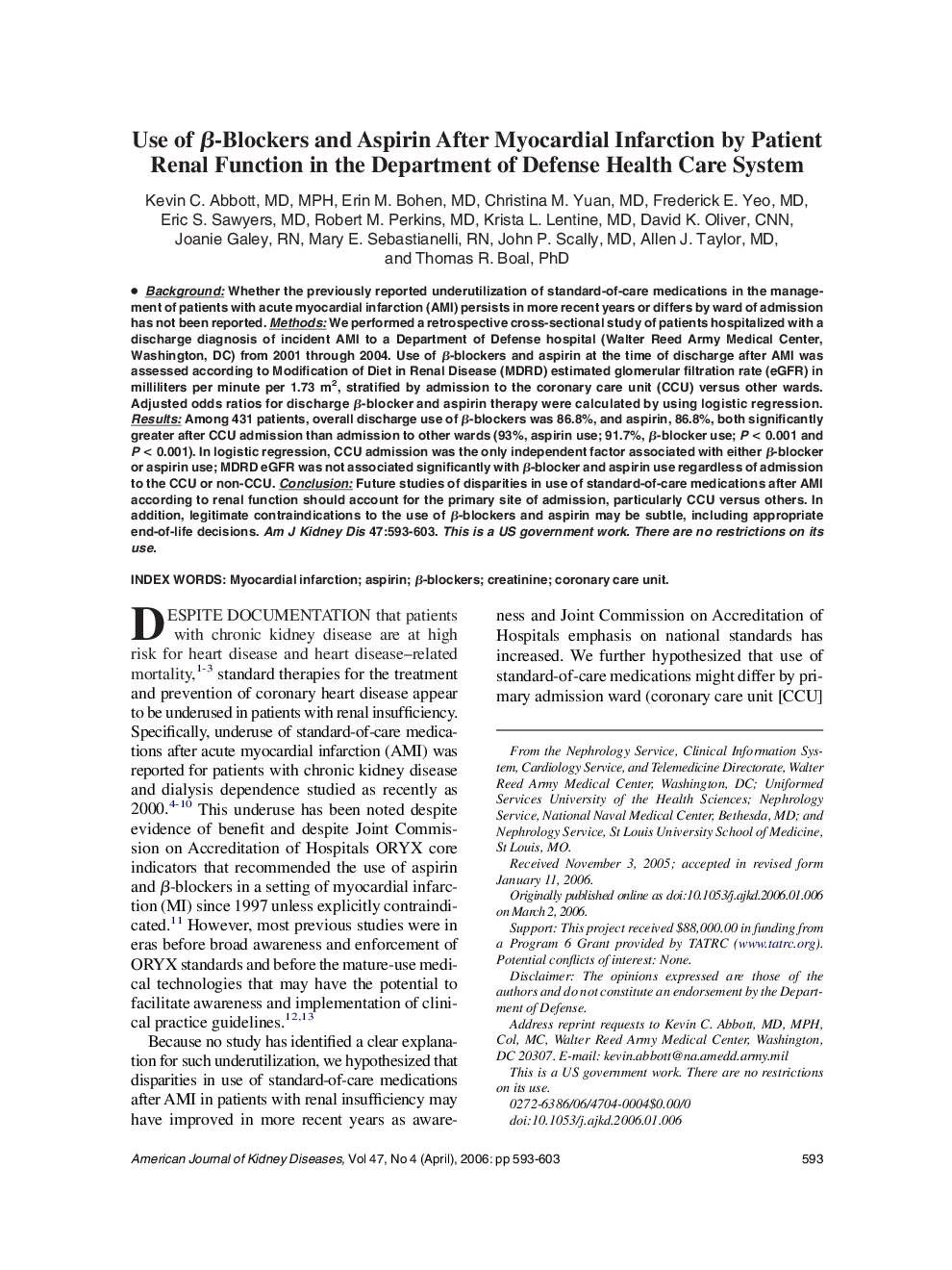| Article ID | Journal | Published Year | Pages | File Type |
|---|---|---|---|---|
| 3852240 | American Journal of Kidney Diseases | 2006 | 11 Pages |
Abstract
Background: Whether the previously reported underutilization of standard-of-care medications in the management of patients with acute myocardial infarction (AMI) persists in more recent years or differs by ward of admission has not been reported. Methods: We performed a retrospective cross-sectional study of patients hospitalized with a discharge diagnosis of incident AMI to a Department of Defense hospital (Walter Reed Army Medical Center, Washington, DC) from 2001 through 2004. Use of β-blockers and aspirin at the time of discharge after AMI was assessed according to Modification of Diet in Renal Disease (MDRD) estimated glomerular filtration rate (eGFR) in milliliters per minute per 1.73 m2, stratified by admission to the coronary care unit (CCU) versus other wards. Adjusted odds ratios for discharge β-blocker and aspirin therapy were calculated by using logistic regression. Results: Among 431 patients, overall discharge use of β-blockers was 86.8%, and aspirin, 86.8%, both significantly greater after CCU admission than admission to other wards (93%, aspirin use; 91.7%, β-blocker use; P < 0.001 and P < 0.001). In logistic regression, CCU admission was the only independent factor associated with either β-blocker or aspirin use; MDRD eGFR was not associated significantly with β-blocker and aspirin use regardless of admission to the CCU or non-CCU. Conclusion: Future studies of disparities in use of standard-of-care medications after AMI according to renal function should account for the primary site of admission, particularly CCU versus others. In addition, legitimate contraindications to the use of β-blockers and aspirin may be subtle, including appropriate end-of-life decisions.
Related Topics
Health Sciences
Medicine and Dentistry
Nephrology
Authors
Kevin C. MD, MPH, Erin M. MD, Christina M. MD, Frederick E. MD, Eric S. MD, Robert M. MD, Krista L. MD, David K. CNN, Joanie RN, Mary E. RN, John P. MD, Allen J. MD, Thomas R. PhD,
